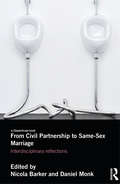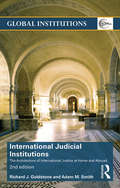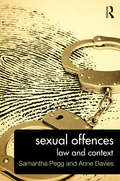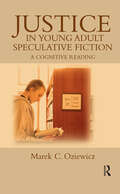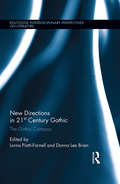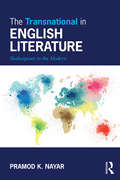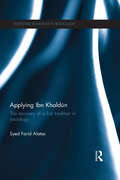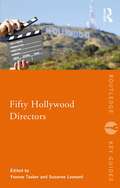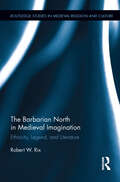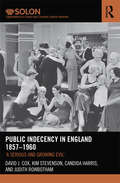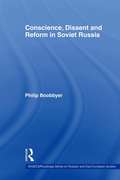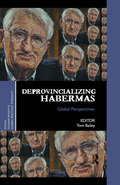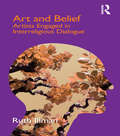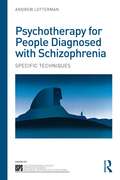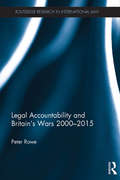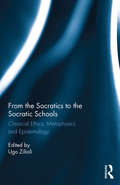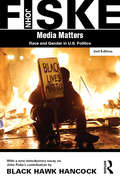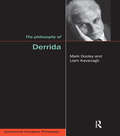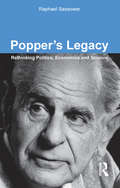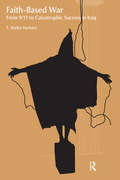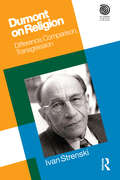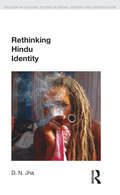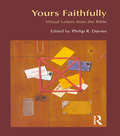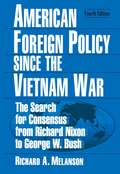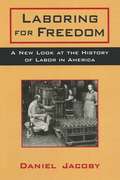Special Collections
Benetech’s Global Certified Accessible Titles
Description: Benetech’s GCA program is the first independent third-party EPUB certification to verify ebook accessibility. By creating content that is born accessible, publishers can meet the needs of all readers. Learn more: https://bornaccessible.benetech.org/
- Table View
- List View
From Civil Partnership to Same-Sex Marriage
by Nicola Barker and Daniel MonkThe Civil Partnership Act 2004 and the Marriage (Same Sex Couples) Act 2013 are important legal, social and historical landmarks, rich in symbolic, material and cultural meanings. While fiercely opposed by many, within mainstream narratives they are often represented as a victory in a legal reform process that commenced with the decriminalisation of homosexuality. Yet, at the same time, for others they represent a problematic and ambivalent political engagement with the institution of marriage. Consequently, understood or labelled as ‘revolutionary’, ‘progressive’ and ‘conservative’, these legal reforms provide a space for thinking about issues that arguably affect everyone, regardless of sexual orientation or relationship status. This edited collection brings together scholars and commentators from a range of backgrounds, generations and disciplines to reflect on the first ten years of civil partnerships and the introduction of same-sex marriage. Rather than rehearsing the arguments ‘for’ and ‘against’ relationship recognition, the essays ask original questions, draw on a variety of methods and collectively provide a detailed and reflective ‘snap shot’ of a critical moment, a ‘history of the present’ as well as providing a foundation for innovative ways of thinking about and engaging with the possibilities and experiences arising from the new reality of relationship recognition for gays and lesbians.
International Judicial Institutions
by Richard J. Goldstone and Adam M. SmithThis fully-updated and much expanded second edition provides a much needed, short and accessible introduction to the current debates in international humanitarian law. Written by a former UN Chief Prosecutor and a leading international law expert, this book analyses the legal and political underpinnings of international judicial institutions, it provides the reader with an understanding of both the historical development of institutions directed towards international justice, as well as an overview of the differences and similarities between such organizations. New to this edition: New updates on recently found records of the United Nations War Crimes Commission. Updates on the recent judicial decisions of the International Criminal Tribunal for the former Yugoslavia and International Criminal Tribunal for Rwanda Updates on the Special Tribunal For Lebanon A re-evaluation of the future of the International Criminal Court International Judicial Institutions: Second Edition will be of great interest to students of International Politics, Criminology and Law.
Sexual Offences
by Samantha Pegg and Anne DaviesSexual Offences: Law and Context presents the substantive law governing sexual offending in England and Wales in its socio-legal and historical context. It outlines the complexities of the Sexual Offences Act 2003, associated pieces of legislation and the common law offences in a clear, linear narrative. The book highlights and discusses key themes in the contemporary law including rape and consent, sexual offences against children, abuse of people with mental disorders, pornography offences, and prostitution. It offers a critical discussion of challenges for the law and potential ways forward for the future. Designed to be a comprehensive overview, Sexual Offences: Law and Context will be an invaluable resource for students of law and criminology taking courses on sexual offences or pursuing research in this area.
Justice in Young Adult Speculative Fiction
by Marek C. OziewiczThis book is the first to offer a justice-focused cognitive reading of modern YA speculative fiction in its narrative and filmic forms. It links the expansion of YA speculative fiction in the 20th century with the emergence of human and civil rights movements, with the communitarian revolution in conceptualizations of justice, and with spectacular advances in cognitive sciences as applied to the examination of narrative fiction. Oziewicz argues that complex ideas such as justice are processed by the human mind as cognitive scripts; that scripts, when narrated, take the form of multiply indexable stories; and that YA speculative fiction is currently the largest conceptual testing ground in the forging of justice consciousness for the 21st century world. Drawing on recent research in the cognitive and evolutionary sciences, Oziewicz explains how poetic, retributive, restorative, environmental, social, and global types of justice have been represented in narrative fiction, from 19th century folk and fairy tales through 21st century fantasy, dystopia, and science fiction. Suggesting that the appeal of these and other nonmimetic genres is largely predicated on the dream of justice, Oziewicz theorizes new justice scripts as conceptual tools essential to help humanity survive the qualitative leap toward an environmentally conscious, culturally diversified global world. This book is an important contribution to studies of children’s and YA speculative fiction, adding a new perspective to discussions about the educational as well as social potential of nonmimetic genres. It demonstrates that the justice imperative is very much alive in YA speculative fiction, creating new visions of justice relevant to contemporary challenges.
New Directions in 21st-Century Gothic
by Lorna Piatti-Farnell and Donna Lee BrienThis book brings together a carefully selected range of contemporary disciplinary approaches to new areas of Gothic inquiry. Moving beyond the representational and historically based aspects of literature and film that have dominated Gothic studies, this volume both acknowledges the contemporary diversification of Gothic scholarship and maps its changing and mutating incarnations. Drawing strength from their fascinating diversity, and points of correlation, the varied perspectives and subject areas cohere around a number of core themes — of re-evaluation, discovery, and convergence — to reveal emerging trends and new directions in Gothic scholarship. Visiting fascinating areas including the Gothic and digital realities, uncanny food experiences, representations of death and the public media, Gothic creatures and their popular legacies, new approaches to contemporary Gothic literature, and re-evaluations of the Gothic mode through regional narratives, essays reveal many patterns and intersecting approaches, forcefully testifying to the multifaceted, although lucidly coherent, nature of Gothic studies in the 21st Century. The multiple disciplines represented — from digital inquiry to food studies, from fine art to dramaturgy — engage with the Gothic in order to offer new definitions and methodological approaches to Gothic scholarship. The interdisciplinary, transnational focus of this volume provides exciting new insights into, and expanded and revitalised definitions of, the Gothic and its related fields.
The Transnational in English Literature
by Pramod K. NayarThe Transnational in English Literature examines English literary history through its transnational engagements and argues that every period of English Literature can be examined through its global relations. English identity and nationhood is therefore defined through its negotiation with other regions and cultures. The first book to look at the entirety of English literature through a transnational lens, Pramod Nayar: Maps the discourses that constitute the global in every age, from the Early Modern to the twentieth century Offers readings of representative texts in poetry, fiction, essay and drama, covering a variety of genres such as Early Modern tragedy, the adventure novel, the narrative poem, Gothic and utopian fiction Examines major authors including Shakespeare, Defoe, Behn, Swift, Coleridge, Wordsworth, Austen, Mary Shelley, the Brontës, Doyle, Ballantyne, Orwell, Conrad, Kipling, Forster Looks at themes such as travel and discovery, exoticism, mercantilism, commodities, the civilisational mission and the multiculturalization of England. Useful for students and academics alike this book offers a comprehensive survey of the English canon questioning and analysing the transnational and global engagements of English literature.
Applying Ibn Khaldūn
by Syed Farid AlatasThe writings of Ibn Khaldūn, particularly the Muqaddimah (Prolegomenon) have rightly been regarded as being sociological in nature. For this reason, Ibn Khaldūn has been widely regarded as the founder of sociology, or at least a precursor of modern sociology. While he was given this recognition, however, few works went beyond proclaiming him as a founder or precursor to the systematic application of his theoretical perspective to specific historical and contemporary aspects of Muslim societies in North Africa and the Middle East. The continuing presence of Eurocentrism in the social sciences has not helped in this regard: it often stands in the way of the consideration of non-Western sources of theories and concepts. This book provides an overview of Ibn Khaldūn and his sociology, discusses reasons for his marginality, and suggests ways to bring Ibn Khaldūn into the mainstream through the systematic application of his theory. It moves beyond works that simply state that Ibn Khaldūn was a founder of sociology or provide descriptive accounts of his works. Instead it systematically applies Khaldūn’s theoretical perspective to specific historical aspects of Muslim societies in North Africa and the Middle East, successfully integrating concepts and frameworks from Khaldūnian sociology into modern social science theories. Applying Ibn Khaldūn will be of interest to students and scholars of sociology and social theory.
Fifty Hollywood Directors
by Yvonne Tasker and Suzanne LeonardFifty Hollywood Directors introduces the most important, iconic and influential filmmakers who worked in Hollywood between the end of the silent period and the birth of the blockbuster. By exploring the historical, cultural and technological contexts in which each director was working, this book traces the formative period in commercial cinema when directors went from pioneers to industry heavyweights. Each entry discusses a director’s practices and body of work and features a brief biography and suggestions for further reading. Entries include: Frank Capra Cecil B DeMille John Ford Alfred Hitchcock Fritz Lang Orson Welles DW Griffith King Vidor This is an indispensible guide for anyone interested in film history, Hollywood and the development of the role of the director.
The Barbarian North in Medieval Imagination
by Robert RixThis book examines the sustained interest in legends of the pagan and peripheral North, tracing and analyzing the use of an ‘out-of-Scandinavia’ legend (Scandinavia as an ancestral homeland) in a wide range of medieval texts from all over Europe, with a focus on the Anglo-Saxon tradition. The pagan North was an imaginative region, which attracted a number of conflicting interpretations. To Christian Europe, the pagan North was an abject Other, but it also symbolized a place from which ancestral strength and energy derived. Rix maps how these discourses informed ‘national’ legends of ancestral origins, showing how an ‘out-of-Scandinavia’ legend can be found in works by several familiar writers including Jordanes, Bede, ‘Fredegar’, Paul the Deacon, Freculph, and Æthelweard. The book investigates how legends of northern warriors were first created in classical texts and since re-calibrated to fit different medieval understandings of identity and ethnicity. Among other things, the ‘out-of-Scandinavia’ tale was exploited to promote a legacy of ‘barbarian’ vigor that could withstand the negative cultural effects of Roman civilization. This volume employs a variety of perspectives cutting across the disciplines of poetry, history, rhetoric, linguistics, and archaeology. After years of intense critical interest in medieval attitudes towards the classical world, Africa, and the East, this first book-length study of ‘the North’ will inspire new debates and repositionings in medieval studies.
Public Indecency in England 1857-1960
by Judith Rowbotham and Kim Stevenson and David J. Cox and Candida HarrisThroughout the nineteenth century and twentieth century, various attempts were made to define and control problematic behaviour in public by legal and legislative means through the use of a somewhat nebulous concept of ‘indecency’. Remarkably however, public indecency remains a much under-researched aspect of English legal, social and criminal justice history. Covering a period of just over a century, from 1857 (the date of the passing of the first Obscene Publications Act) to 1960 (the date of the famous trial of Penguin Books over their publication of Lady Chatterley’s Lover following the introduction of a new Obscene Publications Act in the previous year), Public Indecency in England investigates the social and cultural obsession with various forms of indecency and how public perceptions of different types of indecent behaviour led to legal definitions of such behaviour in both common law and statute. This truly interdisciplinary book utilises socio-legal, historical and criminological research to discuss the practical response of both the police and the judiciary to those caught engaging in public indecency, as well as to highlight the increasing problems faced by moralists during a period of unprecedented technological developments in the fields of visual and aural mass entertainment. It is written in a lively and approachable style and, as such, is of interest to academics and students engaged in the study of deviance, law, criminology, sociology, criminal justice, socio-legal studies, and history. It will also be of interest to the general reader.
Conscience, Dissent and Reform in Soviet Russia
by Philip BoobbyerThis book embraces the political, intellectual, social and cultural history of Soviet Russia. Providing a useful perspective of Putin’s Russia, and with a strong historical and religious background, the book: looks at the changing features of the Soviet ideology from Lenin to Stalin, and the moral universe of Stalin's time explores the history of the moral thinking of the dissident intelligentsia examines the moral dimension of Soviet dissent amongst dissidents of both religious and secular persuasions, and includes biographical material explores the ethical assumptions of the perestroika era, firstly amongst Communist leaders, and then in the emerging democratic and national forces.
Deprovincializing Habermas
by Tom BaileyThis volume engages with Jürgen Habermas’s political theory from critical perspectives beyond its Western European origins. In particular, it explores the challenges of democratizing, decolonizing and desecularizing his theory for global contexts, and proposes ‘deprovincializing’ reformulations for contemporary political and social issues.
Art and Belief
by Ruth Illman'Art and Belief' explores communication between faiths through an examination of contemporary artistic practice. The book discusses how a range of artists formulate their worldview and what motivates them to engage in dialogue. These artists are engaged in a wide range of artistic forms and practice and come to dialogue from diverse religious positions. The aim of the book is to question the assumptions of interreligious dialogue as a largely intellectual exercise in defining the religious "other" and to explore dialogue as a manifestation of interpersonal ethics.
Psychotherapy for People Diagnosed with Schizophrenia
by Andrew LottermanIn this unique book, Andrew Lotterman describes a creative approach to the psychotherapy of people diagnosed with schizophrenia and other forms of psychosis. Lotterman focuses on specific techniques that can be used in psychological therapy with people who have symptoms such as hallucinations, delusions, paranoia, ideas of reference, looseness of association and pressured speech. Formerly titled Specific Techniques for the Psychotherapy of Schizophrenic Patients, this edition updates research on the biology and psychology of psychosis and explores the many controversial issues surrounding diagnosis. It also includes two new chapters on the psychology and treatment of paranoia and on the experience of having a shattered self and the delusion of being the Messiah. Lotterman’s innovative approach aims to help patients with one of the most debilitating symptoms of psychosis: the collapse of language use. By restoring language as a way of communicating the patient’s meaningful inner life to himself and to others, the patient is then able to undertake a more traditional form of verbal psychotherapy. The book presents detailed case histories of patients who have benefited from this method, highlighting the specific techniques used and the psychological improvements that followed. The approach presented here complements medication-based treatments that have only had partial success, as well as other psychological approaches such as cognitive behavioural therapy, family therapy and social skills training. Psychotherapy for People Diagnosed with Schizophrenia will be a valuable text for clinicians working with people suffering from psychosis, including psychotherapists, psychoanalysts, psychologists, physicians and social workers. It will also be of great interest to academics and students.
Legal Accountability and Britain's Wars 2000-2015
by Peter RoweThis book discusses the manner in which Britain’s wars, which took place between 2000 and 2015, have interacted with the relevant principles of international law and English law for the purpose, primarily, of considering legal accountability. During a debate in the House of Lords in 2005 a former Chief of the Defence Staff commented that ‘the Armed Forces are under legal siege.’ The book will discuss the major legal issues which have arisen, ranging from the various votes in Parliament to go to war, the constitutional relationship between ministers and senior commanders, the right under international law to use force, the influence of human rights law, the role of the courts in England (including the coroners’ courts), to the legal regime applying to the conduct of UK military operations. It will assess critically whether the armed forces will now have to accept that operations conducted outside the UK are subject to greater legal scrutiny than previously and whether, if this is the case, it is likely to hinder their future military activities. This book will be of great interest to scholars of international law, the law of armed conflict, military studies and international relations, as well as to those with a professional or other interest in the subject matter.
From the Socratics to the Socratic Schools
by Ugo ZilioliIn the two golden centuries that followed the death of Socrates, ancient philosophy underwent a tremendous transformation that culminated in the philosophical systematizations of Plato, Aristotle and the Hellenistic schools. Fundamental figures other than Plato were active after the death of Socrates; his immediate pupils, the Socratics, took over his legacy and developed it in a variety of ways. This rich philosophical territory has however been left largely underexplored in the scholarship. This collection of eleven previously unpublished essays by leading scholars fills a gap in the literature, providing new insight into the ethics, metaphysics, and epistemology as developed by key figures of the Socratic schools. Analyzing the important contributions that the Socratics and their heirs have offered ancient philosophical thought, as well as the impact these contributions had on philosophy as a discipline, this book will appeal to researchers and scholars of Classical Studies, as well as Philosophy and Ancient History.
Media Matters
by John Fiske and Black Hawk HancockNow, more than 20 years since its initial release, John Fiske’s classic text Media Matters remains both timely and insightful as an empirically rich examination of how the fierce battle over cultural meaning is negotiated in American popular culture. Media Matters takes us to the heart of social inequality and the call for social justice by interrogating some of the most important issues of its time. Fiske offers a practical guide to learning how to interpret the ways that media events shape the social landscape, to contest official and taken-for-granted accounts of how events are presented/conveyed through media, and to affect social change by putting intellectual labor to public use. A new introductory essay by former Fiske student Black Hawk Hancock entitled ‘Learning How to Fiske: Theorizing Cultural Literacy, Counter-History, and the Politics of Media Events in the 21st Century’ explains the theoretical and methodological tools with which Fiske approaches cultural analysis, highlighting the lessons today’s students can continue to draw upon in order to understand society today.
The Philosophy of Derrida
by Mark Dooley and Liam KavanaghFor more than forty years Jacques Derrida has attempted to unsettle and disturb the presumptions underlying many of our most fundamental philosophical, political, and ethical conventions. In The Philosophy of Derrida, Mark Dooley examines Derrida's large body of work to provide an overview of his core philosophical ideas and a balanced appraisal of their lasting impact. One of the author's primary aims is to make accessible Derrida's writings by discussing them in a vernacular that renders them less opaque and nebulous. Derrida's unusual writing style, which mixes literary and philosophical vocabularies, is shown to have hindered their interpretation and translation. Dooley situates Derrida squarely in the tradition of historicist, hermeneutic and linguistic thought, and Derrida's objectives and those of "deconstruction" are rendered considerably more convincing. While Derrida's works are ostensibly diverse, Dooley reveals an underlying cohesion to his writings. From his early work on Husserl, Hegel and de Saussure, to his most recent writings on justice, hospitality and cosmopolitanism, Derrida is shown to have been grappling with the vexed question of national, cultural and personal identity and asking to what extent the notion of a "pure" identity has any real efficacy. Viewed from this perspective Derrida appears less as a wanton iconoclast, for whom deconstruction equals destruction, but as a sincere and sensitive writer who encourages us to shed light on out historical constructions so as to reveal that there is much about ourselves that we do not know.
Popper's Legacy
by Raphael SassowerThe work of Karl Popper has had extraordinary influence across the fields of scientific and social thought. Widely regarded as one of the greatest philosophers of science of the twentieth century, he was also a highly influential social and political philosopher, a proponent and defender of the "open society". "Popper's Legacy" examines Popper in the round, analysing in particular his moral and psychological insights. Once Popper's scientific legacy is couched in political and moral terms, it becomes apparent that his concern for individual autonomy does not come at the expense of institutional guidelines and social conventions. Instead, these guidelines turn out to be essential sanctions for individual freedom. Popper envisions the conduct of the scientific community as paralleling the conduct of any democratically established community. Critical rationality guides the words and actions of all participants and leadership can be replaced without violence. In presenting a critical overview, "Popper's Legacy" reveals the debt many intellectual movements - such as Marxism, feminism, and postmodernism - still owe to Popper.
Faith-Based War
by T. Walter HerbertThe American invasion of Iraq was largely governed by faith-based policy. The "shock and Awe" strategy, alongside a grossly mismanaged occupation, led to the loss of American lives. Faith-Based War presents an analysis of the imperialist Christian militarism behind the Bush Administration. America’s self-perception as God’s Chosen is examined and its catastrophic results detailed. The book offers an ethical, political and theological perspective on the perversion of Christian teaching behind the war in Iraq and the moral culpability of the American empire.
Dumont on Religion
by Ivan StrenskiLouis Dumont was a prominent anthropologist and sociologist whose work - notably on Indian society - influenced the study of religion. 'Dumont on Religion' introduces Dumont's work on kinship studies, structural theory, and his views on idealism. Subjects of particular interest to students of religion are highlighted, including Dumont's concepts of the sacred and profane, pure and impure, transcendence, values and hierarchy. The book also presents the ethical implications of Dumont's ideas and his comparison between the world views of modern and traditional societies.
Rethinking Hindu Identity
by Dwijendra Narayan JhaRecent years have seen the emergence of a virulent version of Hindu nationalism and fundamentalism in India under the banner of Hindutva. This xenophobic movement has obfuscated and mystified the notion of Hindu identity and reinforced its stereotypes. Its arguments range from the patently unscientific - humankind was created in India, as was the first civilisation - to historical whitewash: Hinduism has continued in one, unchanged form for 5000 years; Hinduism has always been a tolerant faith. 'Rethinking Hindu Identity' offers a corrective based on a deep and detailed reading of Indian history. Written in a riveting style, this study provides a fresh history of Hinduism - its practices, its beliefs, its differences and inconsistencies, and its own myths about itself. Along the way, the book systematically demolishes the arguments of Hindu fundamentalism and nationalism, revealing how the real history of Hinduism is much more complex.
Yours Faithfully
by Philip R. Davies'Yours Faithfully' presents an anthology of virtual letters from the Bible, in which leading scholars imagine correspondence between biblical characters. Each letter conveys the insights that a given character might have and, together, the letters provide a rich sense of the concerns which propel and characters who inhabit the Bible. The letters are written in a range of styles - from the strictly historical to the very contemporary - and embrace the serious and the playful. The aim is to offer a commentary on familiar texts and events and to continue a long tradition of retelling stories from the Bible.
American Foreign Policy Since the Vietnam War
by Richard A MelansonThis book integrates the study of presidential politics and foreign policy-making from the Vietnam aftermath to the events following September 11 and the Iraqi War. Focusing on the relationship between presidents' foreign policy agendas and domestic politics, it offers compelling portraits of presidents Nixon, Carter, Reagan, Bush I, Clinton, and Bush II. In the course of comparing the efforts of these presidents to articulate a clear conception of the national interest and to forge a foreign policy consensus, the author shows the key role of public opinion in constraining presidential initiatives, in particular the decision to use military force overseas. Never more timely, this popular text is appropriate for courses in U.S. foreign policy, the presidency, or contemporary U.S. politics.
Laboring for Freedom
by Daniel JacobyThis text examines the concept of freedom in the context of American labour history. Nine essays develop themes in this history which show that liberty of contract and inalienable rights form two contradictory traditions concerning freedom.
